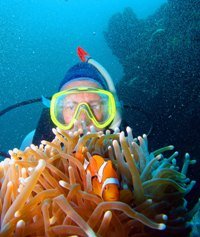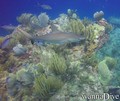Cette carte est interactive ! Utilisez les boutons pour zoomer ou vous déplacer.
Accès
|
English (Traduisez ce texte en Français): South of Great bay. The site is equipped with mooring buoys. This dive site is part of the St Maarten Marine Park. You need to have a valid dive tag to be diving on this site. (see www.naturefoundationsxm.org)
English (Traduisez ce texte en Français): South of Great bay. The site is equipped with mooring buoys. This dive site is part of the St Maarten Marine Park. You need to have a valid dive tag to be diving on this site. (see www.naturefoundationsxm.org)
South of Great bay. The site is equipped with mooring buoys. This dive site is part of the St Maarten Marine Park. You need to have a valid dive tag to be diving on this site. (see www.naturefoundationsxm.org)
English (Traduisez ce texte en Français): South of Great bay. The site is equipped with mooring buoys. This dive site is part of the St Maarten Marine Park. You need to have a valid dive tag to be diving on this site. (see www.naturefoundationsxm.org)
English (Traduisez ce texte en Français): South of Great bay. The site is equipped with mooring buoys. This dive site is part of the St Maarten Marine Park. You need to have a valid dive tag to be diving on this site. (see www.naturefoundationsxm.org)
English (Traduisez ce texte en Français): South of Great bay. The site is equipped with mooring buoys. This dive site is part of the St Maarten Marine Park. You need to have a valid dive tag to be diving on this site. (see www.naturefoundationsxm.org)
English (Traduisez ce texte en Français): South of Great bay. The site is equipped with mooring buoys. This dive site is part of the St Maarten Marine Park. You need to have a valid dive tag to be diving on this site. (see www.naturefoundationsxm.org)
English (Traduisez ce texte en Français): South of Great bay. The site is equipped with mooring buoys. This dive site is part of the St Maarten Marine Park. You need to have a valid dive tag to be diving on this site. (see www.naturefoundationsxm.org)
English (Traduisez ce texte en Français): South of Great bay. The site is equipped with mooring buoys. This dive site is part of the St Maarten Marine Park. You need to have a valid dive tag to be diving on this site. (see www.naturefoundationsxm.org)
Comment ? Par bateau
Distance Court trajet par bateau (< 10min)
Facile à trouver ? Facile à trouver
|
|
Caractéristiques du site
Autre nom Jason
Prof. moyenne 6.1 m / 20 ft
Prof. max 13.7 m / 44.9 ft
Courant Pas de courant
Visibilité Bonne ( 10 - 30 m)
Qualité
Qualité du site Excellent
Expérience Tous niveaux
Intérêt bio Intéressant
Plus d'infos
Fréquentation semaine
Fréquentation week-end
Type de plongée
- Epave
- Requins
- Récif
Activités plongée
- Photographie
Dangers
Informations supplémentaires
English (Traduisez ce texte en Français): Dutch frigate, originally named the Jason, launched in 1770. In 1796, the crew mutinied and handed the ship over to the British, who renamed the ship HMS Proselyte. In September of 1801, on a trip from St Kitts to St Martin, the ship struck the Man O War Shoals and sank. All of the crew were rescued, however.
You can still see a couple of large anchors, some cannons and other heavily encrusted objects on the sea floor, right below the current mooring. Plenty of wildlife in around the reef. If you're lucky you may even encounter one or two Caribbean Reef sharks prowling the canyons.
English (Traduisez ce texte en Français): Dutch frigate, originally named the Jason, launched in 1770. In 1796, the crew mutinied and handed the ship over to the British, who renamed the ship HMS Proselyte. In September of 1801, on a trip from St Kitts to St Martin, the ship struck the Man O War Shoals and sank. All of the crew were rescued, however.
You can still see a couple of large anchors, some cannons and other heavily encrusted objects on the sea floor, right below the current mooring. Plenty of wildlife in around the reef. If you're lucky you may even encounter one or two Caribbean Reef sharks prowling the canyons.
Dutch frigate, originally named the Jason, launched in 1770. In 1796, the crew mutinied and handed the ship over to the British, who renamed the ship HMS Proselyte. In September of 1801, on a trip from St Kitts to St Martin, the ship struck the Man O War Shoals and sank. All of the crew were rescued, however.
You can still see a couple of large anchors, some cannons and other heavily encrusted objects on the sea floor, right below the current mooring. Plenty of wildlife in around the reef. If you're lucky you may even encounter one or two Caribbean Reef sharks prowling the canyons.
English (Traduisez ce texte en Français): Dutch frigate, originally named the Jason, launched in 1770. In 1796, the crew mutinied and handed the ship over to the British, who renamed the ship HMS Proselyte. In September of 1801, on a trip from St Kitts to St Martin, the ship struck the Man O War Shoals and sank. All of the crew were rescued, however.
You can still see a couple of large anchors, some cannons and other heavily encrusted objects on the sea floor, right below the current mooring. Plenty of wildlife in around the reef. If you're lucky you may even encounter one or two Caribbean Reef sharks prowling the canyons.
English (Traduisez ce texte en Français): Dutch frigate, originally named the Jason, launched in 1770. In 1796, the crew mutinied and handed the ship over to the British, who renamed the ship HMS Proselyte. In September of 1801, on a trip from St Kitts to St Martin, the ship struck the Man O War Shoals and sank. All of the crew were rescued, however.
You can still see a couple of large anchors, some cannons and other heavily encrusted objects on the sea floor, right below the current mooring. Plenty of wildlife in around the reef. If you're lucky you may even encounter one or two Caribbean Reef sharks prowling the canyons.
English (Traduisez ce texte en Français): Dutch frigate, originally named the Jason, launched in 1770. In 1796, the crew mutinied and handed the ship over to the British, who renamed the ship HMS Proselyte. In September of 1801, on a trip from St Kitts to St Martin, the ship struck the Man O War Shoals and sank. All of the crew were rescued, however.
You can still see a couple of large anchors, some cannons and other heavily encrusted objects on the sea floor, right below the current mooring. Plenty of wildlife in around the reef. If you're lucky you may even encounter one or two Caribbean Reef sharks prowling the canyons.
English (Traduisez ce texte en Français): Dutch frigate, originally named the Jason, launched in 1770. In 1796, the crew mutinied and handed the ship over to the British, who renamed the ship HMS Proselyte. In September of 1801, on a trip from St Kitts to St Martin, the ship struck the Man O War Shoals and sank. All of the crew were rescued, however.
You can still see a couple of large anchors, some cannons and other heavily encrusted objects on the sea floor, right below the current mooring. Plenty of wildlife in around the reef. If you're lucky you may even encounter one or two Caribbean Reef sharks prowling the canyons.
English (Traduisez ce texte en Français): Dutch frigate, originally named the Jason, launched in 1770. In 1796, the crew mutinied and handed the ship over to the British, who renamed the ship HMS Proselyte. In September of 1801, on a trip from St Kitts to St Martin, the ship struck the Man O War Shoals and sank. All of the crew were rescued, however.
You can still see a couple of large anchors, some cannons and other heavily encrusted objects on the sea floor, right below the current mooring. Plenty of wildlife in around the reef. If you're lucky you may even encounter one or two Caribbean Reef sharks prowling the canyons.
English (Traduisez ce texte en Français): Dutch frigate, originally named the Jason, launched in 1770. In 1796, the crew mutinied and handed the ship over to the British, who renamed the ship HMS Proselyte. In September of 1801, on a trip from St Kitts to St Martin, the ship struck the Man O War Shoals and sank. All of the crew were rescued, however.
You can still see a couple of large anchors, some cannons and other heavily encrusted objects on the sea floor, right below the current mooring. Plenty of wildlife in around the reef. If you're lucky you may even encounter one or two Caribbean Reef sharks prowling the canyons.
 Dernières plongée
Dernières plongée
Tout voir (3)...

|
By
- Spotted 3 Caribbean Reef Sharks, loads of Fr. Grunt. Nice Spiny Lobster running across the sand between rock outcroppings.
More... |

|
By
-
first dive with Arden, had a blast, huge Green Sea Turtles, lobster, blue tang, parrotfish, stone fish;
this was an old dutch gunboat that broke apart on the reef in the late 1700s, the wood ship was all decayed, but the enormous cannons
More... |
|
 Commentaires
Commentaires
Tout voir (0)...
Soyez le(la) premier(e) à commenter ce pays
Erreurs, Réactions
Vous pouvez corriger des erreurs ou ajouter de nouvelles informations sur cette page. Si vous avez d'autres commentaires à faire sur cette page, Dite-le nous.
 HMS Proselyte
HMS Proselyte Photos
Photos Dernières plongée
Dernières plongée Commentaires
Commentaires




